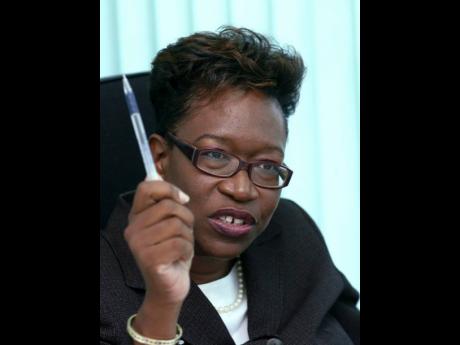DPP: Ruel Reid case won’t be rushed
Western Bureau:
Declaring that Jamaica is not a banana republic, Director of Public Prosecutions (DPP) Paula Llewellyn has said that allegations against booted Minister of Education Ruel Reid will be handled appropriately, and that her office will not be rushed to suit public opinion.
In July, Llewellyn provided the Financial Investigations Division (FID) with a detailed 13-page document, which includes a legal opinion, guidance, and recommendations for investigators to use in their investigations against Reid. At the time, she said that there were four possible criminal laws that may have been breached by the former education minister alongside common-law offences and possible administrative breaches.
No banana republic
However, with concerns being raised about the length of time it is taking investigators to conclude their investigations, Llewellyn made it clear that there will be no short-cut in getting the matter through the system.
“We in Jamaica, we are not a banana republic,” Llewellyn told The Sunday Gleaner last week when she was quizzed about the status of the case against Reid, which includes allegations of corruption.
On March 20, Prime Minister Andrew Holness asked for Reid’s resignation after allegations surfaced of possible corruption at the Ministry of Education and several entities falling under its remit, including the Caribbean Maritime University (CMU).
“It’s only if you are in a banana republic that, because you don’t like a particular person, then you can just say throw them into jail or behead them,” said Llewellyn, in defence of the way the judicial system is handling the matter.
“We are a country that is governed by the rule of law and if we look at the material and the particular charges [and] ingredients have not been made out, it would be unethical to recommend a charge when the ingredients of the offence are not there.”
She added: “At my office, we have objective protocols and ethical protocols that we have to deal with unlike other professions and I am not going to say journalism, [but] we cannot run with it, you can only recommend the charging and that is the deprivation of the liberty of the subject.”
The DPP concluded: “If when you look at the material that has been presented by the investigators, you see where the material covers ingredients of a chargeable offence, irrespective of how you feel about the person or who the person is, the particular standard remains the same.”


